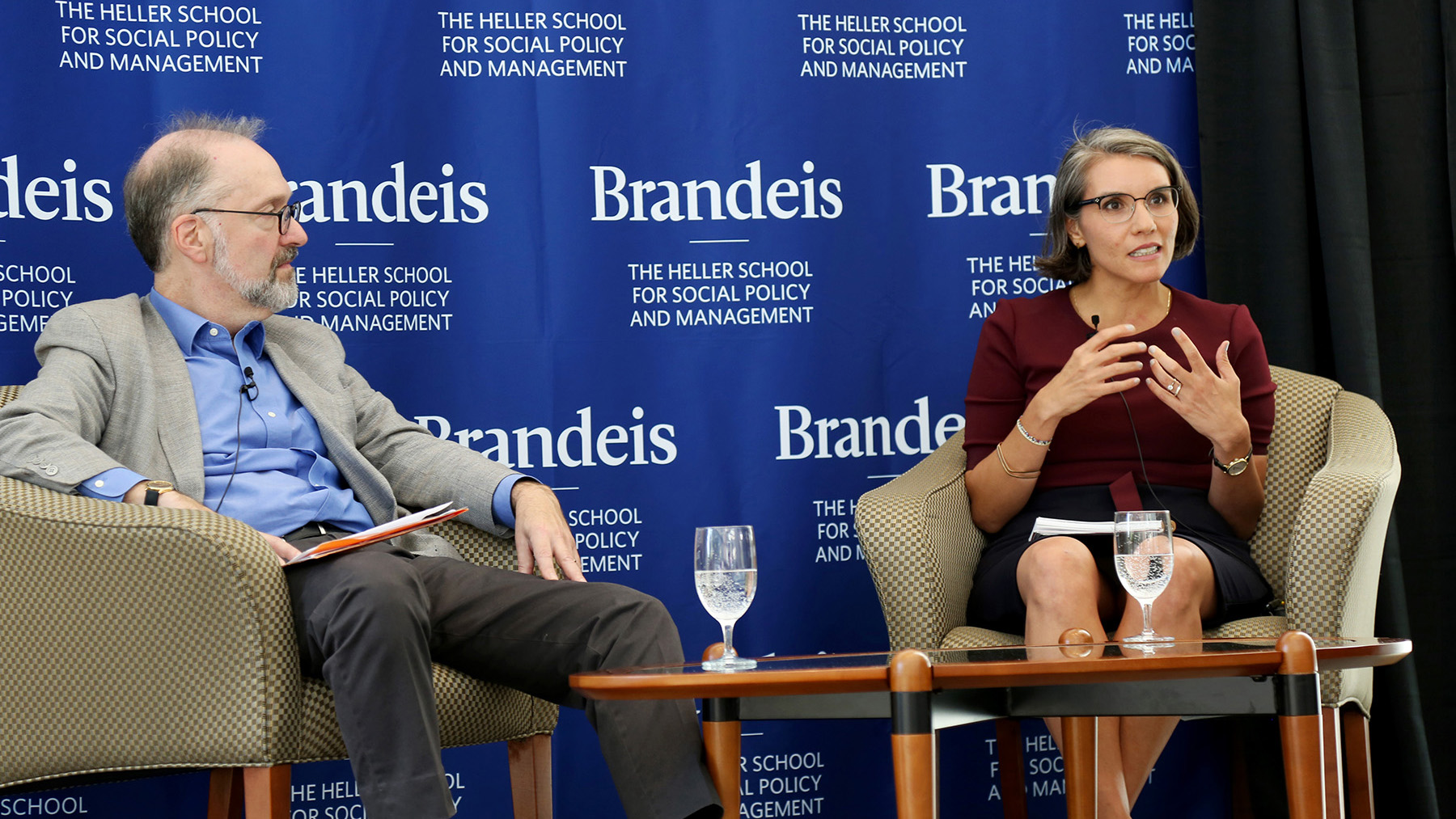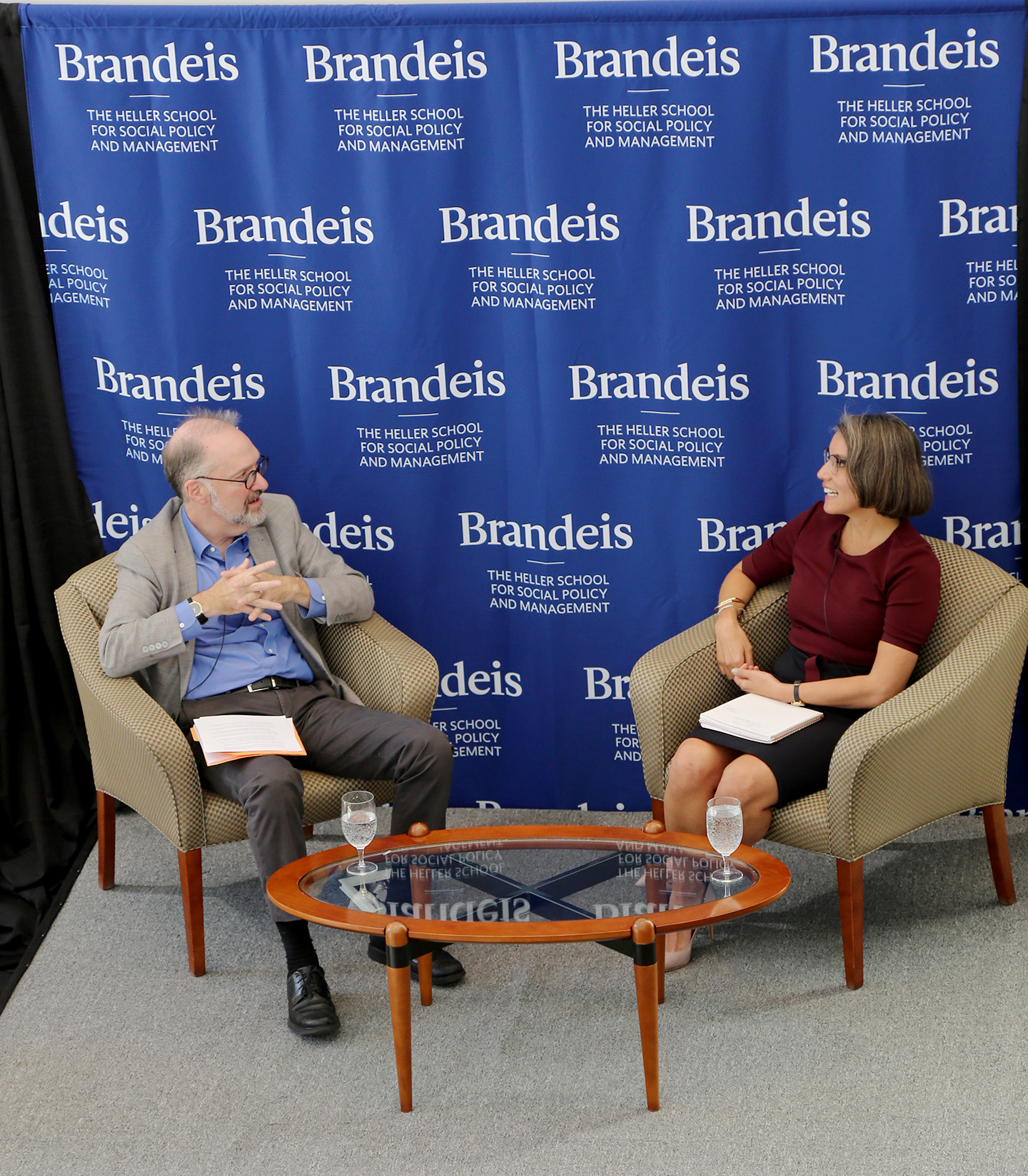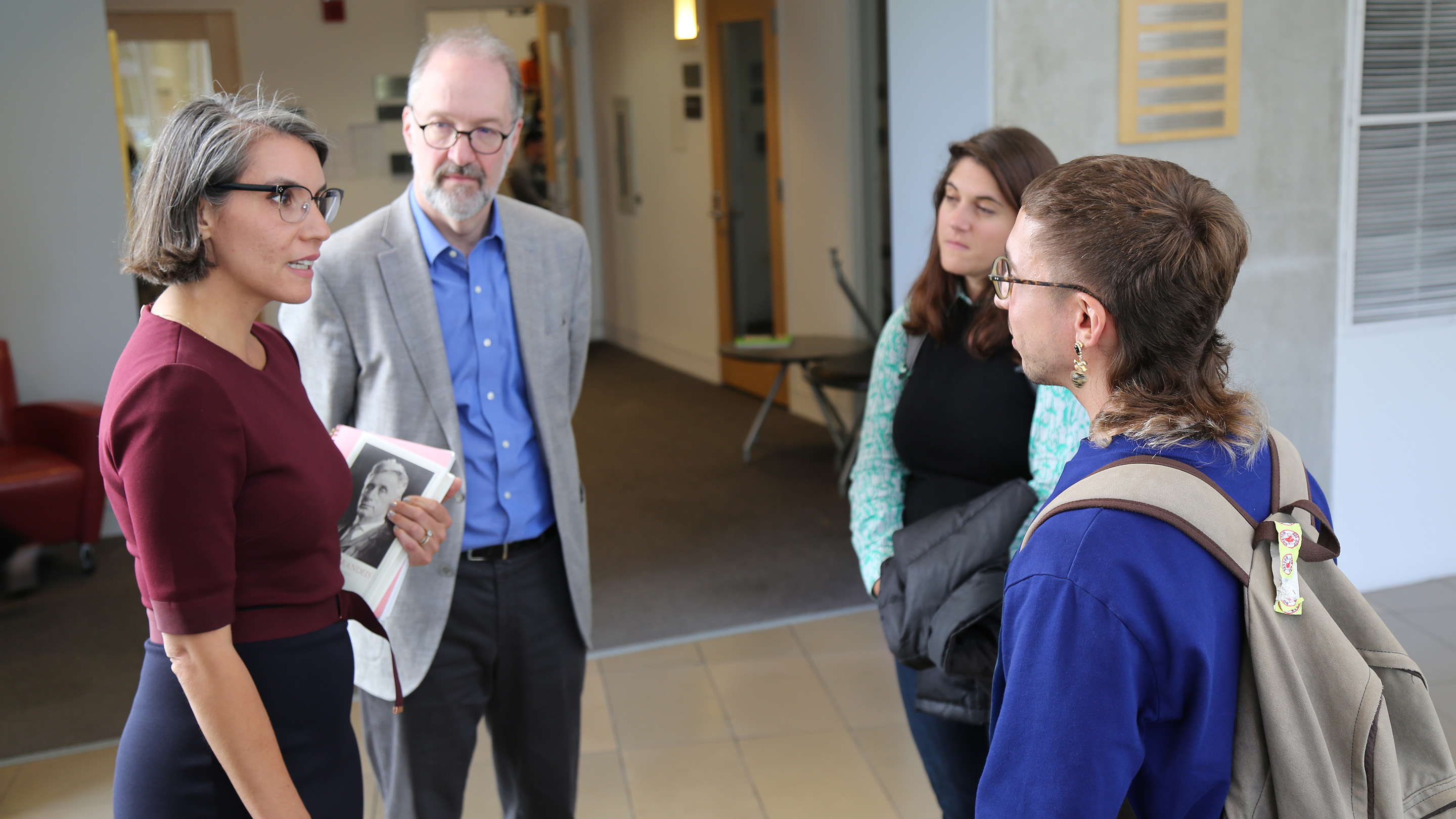
By Karen Shih
“Charity is not justice,” said Carmen Rojas, CEO and founder of the Workers Lab. “I wanted to build an organization to give people money to try things.”
Rojas came to Heller for the first Conversation with the Dean of Heller’s 60th anniversary school year on September 19. She and Dean David Weil discussed ways to improve the lives of U.S. workers, and she offered a critique of traditional philanthropy, described the innovative methods of the Workers Lab and shared her own background and journey.
The daughter of immigrants from Nicaragua and Venezuela, Rojas contrasted her parents’ opportunities with the ones immigrants have today. She described how her mother started an entry-level job cleaning jobs for Bank of America, and after just three months, was able to get a no-interest loan. That type of opportunity was what gave Rojas the chance to go to college, then earn her PhD from the University of California, Berkeley. But that’s virtually impossible today, she said.
That’s why Rojas created the Workers Lab in 2014, after working in both local government and nonprofit organizations. She saw the weakening of unions and growth of incubators in the tech world, and thought she could combine organizing principles with the nimbleness of entrepreneurship to create a better future for American workers.

“The imagination muscle has atrophied,” she said. “Philanthropy is often so encumbered, and risk averse… It’s never as ambitious or audacious as it should be.”
Rojas criticized traditional philanthropy for its conservatism and aversion to risk, saying that it consolidated power and wealth in the hands of bankers and other privileged groups, when it should be distributing it to those who need it.
She held up the Workers Lab’s Innovation Fund as a way to better tackle the issues working people face today. Twice a year, the Innovation Fund awards $150,000 to three organizations out of hundreds who pitch from around the world. Rather than micro-manage how the funds are used, the Workers Lab offers mentorship, training and support, but leaves the decision-making up to the organizations, whether they want to use the money to pay for research or toilet paper—both essential needs, she said.
Dean Weil asked Rojas about the biggest issues facing American workers today.
“Working and still being poor,” she responded. She pointed to the fact that people work 40 to 80 hours a week but still live in poverty as a structural problem, rather than the result of individual actions. “If we were all working toward people not being poor, that would solve a lot of other problems.”
At the end of her lunchtime talk at Heller, Rojas shared her social justice hero, Brandeis alumna and political rights activist Angela Davis ’65, author of “Freedom is a Constant Struggle,” which changed Rojas’ mind about the abolition of prisons.
Davis is “a protagonist in shaping the kind of future we want to see,” Rojas said.

